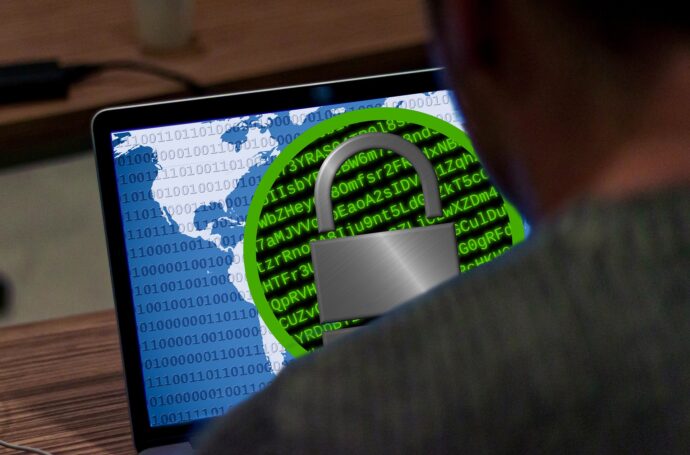Security is a legitimate concern in today’s world, and being digitally and physically secure in your home office space should be the priority of anybody paying attention. Borrowing some ideas from the security gurus who implement security measures in cloud computing, you can bolster your home network’s strength. You can rest a bit easier knowing that you are matching some of the latest measures deployed to keep the ultra-sensitive and private information they host safe.

Physical Security
Your first step is to ensure that you and your loved ones are safe while being home for most of the day. Do this by securing doors, windows, skylights, and any external entrances to your house with simple locks. Save some time and hassle by hiring a home security provider to lend their expertise, or even do the installation of a home security system for you.
Secure Your Router – Encryption and Firewalls
Paying a little extra for a router with a decent firewall and beefed-up encryption and security features is a good step. Updating it to the latest firmware available and changing the default access settings is normally a simple matter of following the prompts of a wizard. VPN’s will play a role in securing any sensitive data that you may transmit or receive online by adding layers of encryption to all your traveling data.
Antivirus
Opting for a competent antivirus is always advisable, as cybersecurity threats are rife these days. Leaking information, or more devastatingly, having your identity stolen, can have far-reaching consequences for you, your business, and your family. Secure yourself and your data before you have to learn what ransomware is.
Password Protect Yourself
Correct password protocols can go a long way in mitigating a hacker’s ability to breach your security, should they penetrate that far. Ensuring you password protect your accounts, logins, and networking equipment, as well as use complex and frequently changing passwords, will be one of the most cost-effective ways to add essential layers of security.
Backups
Losing any data can be catastrophic, but should you happen to be working from home for an employer and you suffer a hard drive crash, then the consequences would be far-reaching. Protect yourself from this by doing simple backups, either to external physical media, the cloud, or preferably, both. Bear in mind that it is always recommended to have some form of offsite backup, should a large event like a fire or natural disaster occur.
Due Diligence
Crooks today are clever, and constantly evolving their methods to trick you out of money, information, or both. Some of the effective defenses against this are to employ constant vigilance and skepticism. Educate yourself on popular methods that these con-artists deploy so that you know when someone is trying one of the tricks in their book. Employing functional email filtering tools is an easy step to weed out many of these attempts.
Your security begins with you, and with some careful thought, adequate precautions, and a fair bit of common sense, you can avoid disaster and catastrophe.



